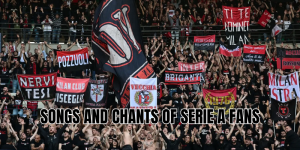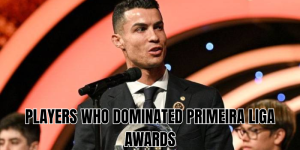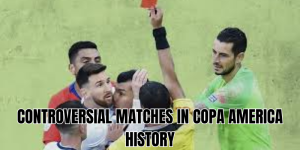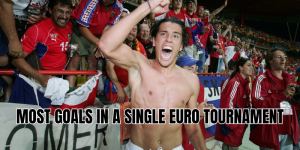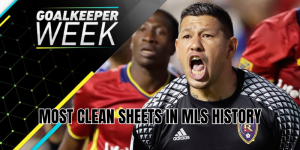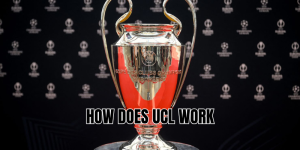Fans have chased records: most goals, most appearances, most titles. Among them, one stands out as almost untouchable — the most goals in a single Copa Libertadores season. It is a feat that has lasted more than half a century, surviving transformations in format, expansion of teams, and the rise of global stars. In this article, DeutKick will take you deep into that record, the man behind it, and how it stacks up against challengers over the years.
The Record That Never Fell
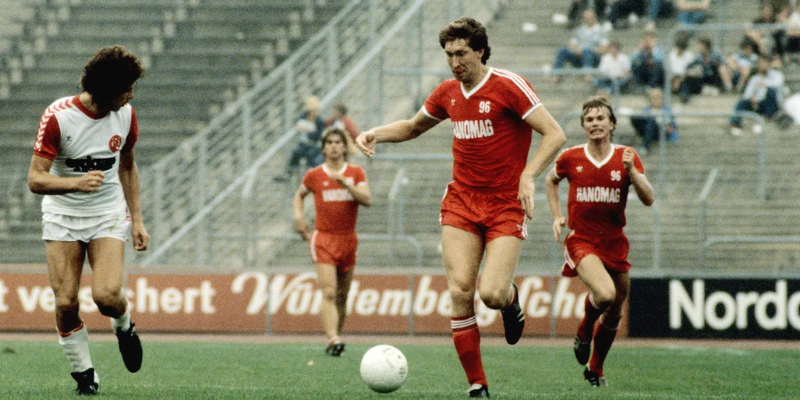
When someone asks, who has the most goals in a single Copa Libertadores season? the name Daniel Onega rises like a legend. In the 1966 edition representing River Plate, Onega scored 17 goals across the tournament — still the highest tally ever recorded in one campaign. That record has survived evolving formats, more matches, and dozens of deadly strikers trying to topple it.
In 1966, the tournament featured fewer teams and different group structures, but Onega’s scoring rate was relentless. That season, he carried River Plate with clinical finishing and consistency, no one has surpassed that 17-goal mark — though a few have drawn close.
The 1966 Copa Libertadores itself was tense and competitive: 17 teams competed, matches spanned, Onega’s 17 goals outpaced his nearest rivals by a significant margin — Pedro Rocha’s ten goals for Peñarol, for example.
Thus, the phrase most goals in a single Copa Libertadores season remains synonymous with Onega’s name.
Daniel Onega: The Man Behind the Record
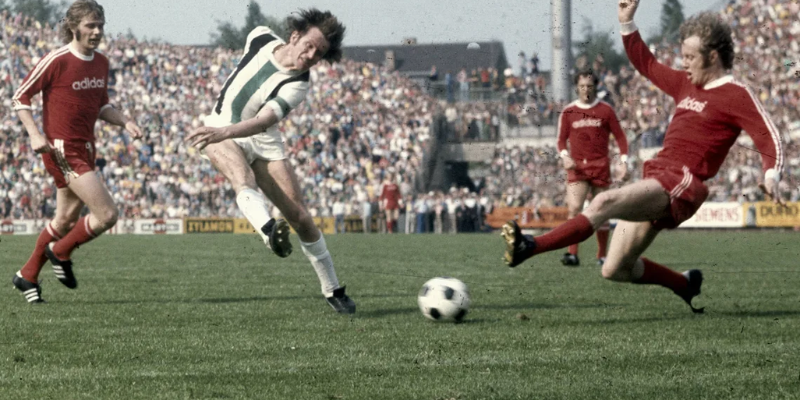
Early Life and Rise
Daniel Germán Onega was born on March 17, 1945, in Las Parejas, Santa Fe, Argentina. He made his way through River Plate’s youth ranks and broke into the first team in the mid-1960s. His playing style combined opportunism, aerial ability, and spatial sense — always seeming to appear exactly when defenders lost focus.
He earned the nickname El Fantasma (“The Ghost”) for his sneaky, untracking runs into space. He also had a close bond with teammates and tactical awareness, which allowed him to thrive even when matches were tight.
1966 Libertadores Breakthrough
It was in the 1966 Libertadores that Onega turned myth. Across perhaps 20 matches in that campaign, he scored 17 goals — an average near 0.85 goals, though they fell to Peñarol, yet his scoring mark still eclipsed competitors by a wide margin.
Remarkably, as tournament formats changed, group sizes expanded, knockout rounds lengthened — and more matches became available — no one could overtake Onega’s output in a single edition.
Career Beyond the Record
After 1966, Onega remained a potent forward but never again matched that peak. He continued at River Plate until 1971, then played for Racing Club, had a stint in Spain with Córdoba CF, and finished his career in Colombia with Millonarios, where he won the Colombian league in 1978. He also represented Argentina, earning 13 caps and scoring 3–4 goals (sources vary).
In the all-time Copa Libertadores scoring list, Onega amassed 31 goals in 47 appearances, placing him among the competition’s greatest marksmen. Only a few — like Alberto Spencer and Fernando Morena — sit above him in the historical chart.
Near Misses: Close Calls to 17
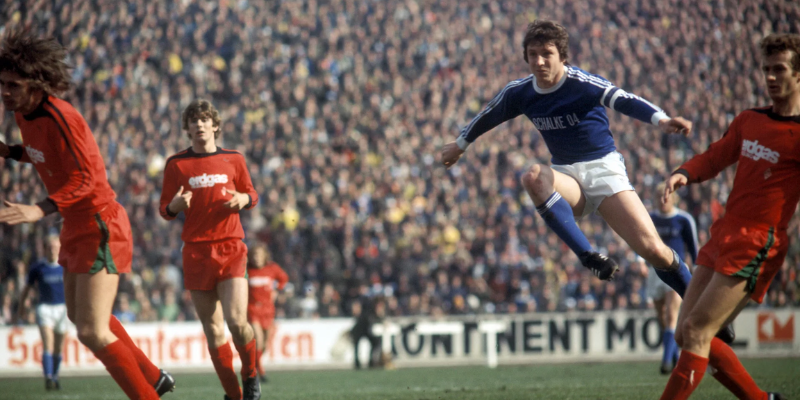
Although Onega’s 17-goal mark remains untouched, a few players came close:
- Norberto Raffo (Racing, 1967) — 14 goals
- Palhinha (Cruzeiro, 1976) — 13 goals
- Luizão (Corinthians, around 2000) — reportedly 15 goals in that edition
- Germán Cano (Fluminense, 2023) — led the scoring charts with 13
These figures show that in modern editions, despite more matches, defenses have become tighter, margins slimmer, and scoring consistency harder to maintain. The days of runaway tallies seem long gone.
Why That Record Still Stands
Why hasn’t anyone broken Onega’s 17-goal mark in more than 50 years? Several reasons:
- Tactical evolution — In modern football, defensive tactics, pressing and counter-organization make it harder for a single player to dominate goal charts to such an extent.
- Sharing goals — Many elite teams rotate scorers, spreading goals across multiple forwards rather than one main finisher.
- Group stage constraints — Some formats restrict how many matches a team can play before elimination; fewer games = fewer chances.
- Better balance — Rival teams are more competitive now, margins are tighter, and knockout legs punish complacency.
- Physical demands — Traveling across South America, altitude, scheduling, and cup overload make consistent performance harder.
All that said, Onega’s record feels like that of mythical proportions: nearly sacred, nearly unassailable.
Comparisons With Other Continental Leagues
It’s interesting to compare continental club tournament records:
- In the UEFA Champions League / European Cup, Cristiano Ronaldo shares a similar one-season peak with 17 goals in 2013-14 — matching Onega’s mark conceptually, though not the same competition.
- Other continental tournaments often see lower single-season peaks due to fewer matches or more evenly distributed scoring.
In CONMEBOL context, Onega’s 17 remains the benchmark for single-season firepower in the Libertadores.
How Many Goals Should Top Scorers Hit Today?
If a modern striker were to aim at this record, what would they need? Let’s imagine:
- A team reaching final stages plays ~14 to 18 matches (group + knockouts).
- They’d need to average nearly one goal per match (or better) across tight, high-pressure games.
- That’s arguably harder now than it was in 1966, given how margins, rotation, and competition have evolved.
Scoring 10–14 goals now often suffices to be top scorer — but to hit 17 remains a Herculean task in modern Libertadores structure.
Record Summary & Top Single-Edition Scorers
Here is a quick summary table of top single-edition scorers (historic & modern):
| Rank | Player | Year / Edition | Goals | Club |
| 1 | Daniel Onega | 1966 | 17 | River Plate |
| 2 | Norberto Raffo | 1967 | 14 | Racing |
| 3 | Luizão | c. 2000 | 15* | Corinthians |
| 4 | Palhinha | 1976 | 13 | Cruzeiro |
| 5 | Germán Cano | 2023 | 13 | Fluminense |
* Reported in historical accounts; subject to verification across sources.
Onega’s single edition total is unmatched. Even players who scored 14 or 15 couldn’t sustain a push across all matches or surpass the gap.
Impact, Legacy, and Mythical Status
Onega’s record is more than just a number — it’s legendary. For River Plate fans and South American football lovers, 1966 is looked upon as a golden era when one player could nearly carry a team by sheer scoring.
The record inspires debate: What if modern futbol allowed Onega’s zone and role? Could a player today break it? When pundits or commentators now mention “single tournament records,” most goals in a single Copa Libertadores season always leads back to Onega’s name.
It also gives aspiring scorers a target that feels eternal — chasing 17 feels like chasing history itself.
Conclusion
The most goals in a single Copa Libertadores season is a record that has stood unwavering for decades — and it belongs to Daniel Onega, thanks to his 17-goal spree with River Plate in 1966. Today, that mark remains a testament to brilliance, consistency, and timing. If you’re a fan of tallies, legends, or statistical greatness, your benchmark will always be Onega’s.
Let DeutKick accompany your next deep dive: check out all-time top scorers, match reviews, or emerging stars pushing toward history. Stay tuned, follow the numbers, and keep chasing records — who knows when the next football legend will rise.

